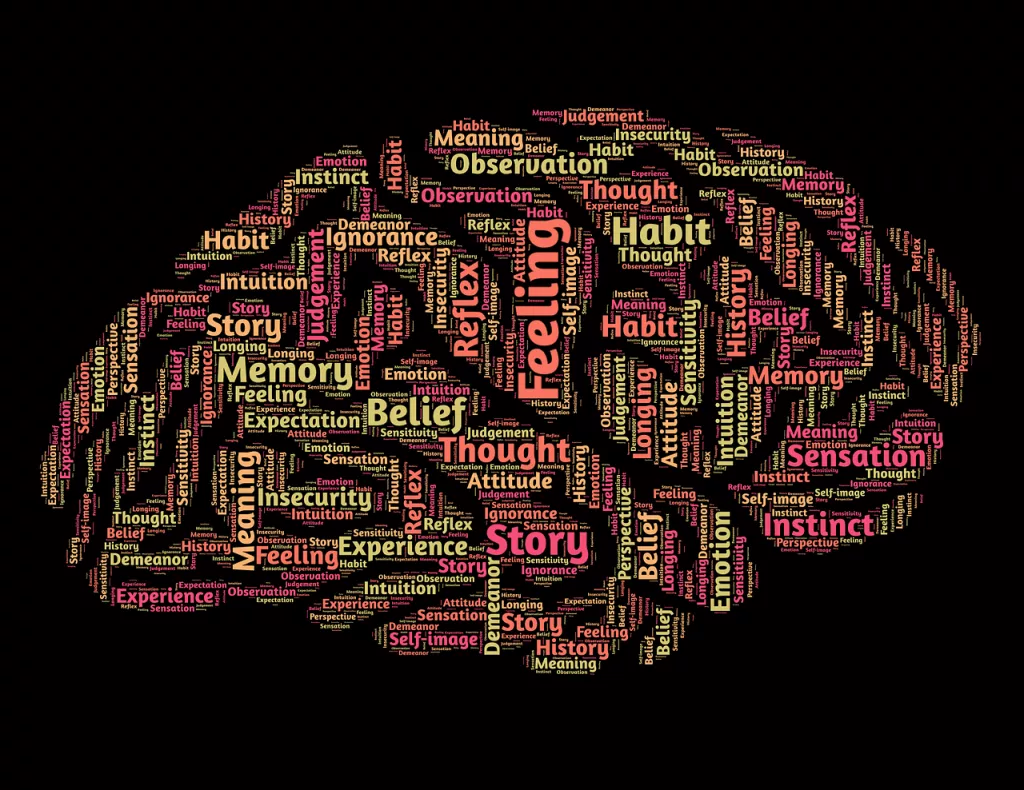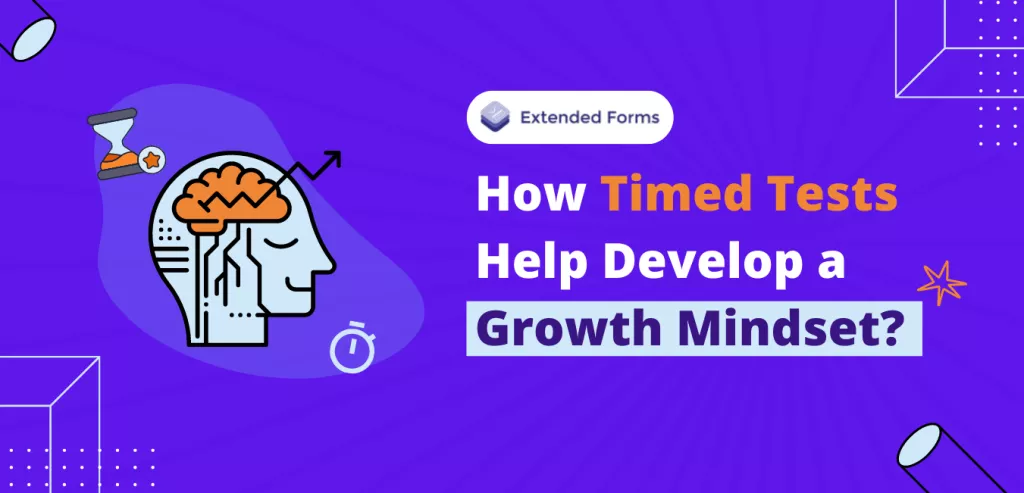What if the way you are conducting assessments/tests is developing students to have a fixed mindset, instead of developing a growth mindset? It might be surprising to many, but timed tests can help you develop a growth mindset for students.
If done right, tests do not have to be necessary evils, but a way to challenge yourself and grow from those opportunities or failures. Google Timed test is one of the ways teachers can conduct assessments for students. When you think of successful, intelligent, or skillful people (or if you look at yourself), how do you think they/you got there?
Do you think it’s because of their genes or are they gifted? Or do you think they have put in their efforts, smart & hard work to reach and achieve everything they have? These thoughts are viewed as different mindsets of the human brain.
Either it’s a fixed mindset or a growth mindset, though sometimes people tend to have different mindsets for different situations. However, developing a growth mindset will lead you to achieve higher things in life. (Not that a fixed mindset is evil here, but it comes with lots of mental limitations and efforts to prove oneself).
In this article, I am going to talk about how timed tests can help you develop a growth mindset for students.
- What is Growth Mindset?
- How to Develop a Growth Mindset?
- Why are tests important for learning?
- What is a Timed Test? (how it develops a growth mindset)
- How can you create a Google timed test?
- FAQs
What is Growth Mindset?
A growth mindset is an outlook towards life – success, and failure. It is an approach towards life in which individuals believe their talents, abilities, and intelligence can be developed further. People with a growth mindset seek opportunities to learn, enhance existing skills, and gain new skills/knowledge.
Besides, they believe that hard work and not luck or chance will take them far in life. However, it’s not just about believing but also the gestalt of your beliefs and actions that make a growth mindset work. Dr. Carol Dweck gave the definition of a growth mindset in her book Mindset: The New Psychology of Success.

She described it as: ‘the growth mindset is based on the belief that people’s basic qualities, skills, and success are things we can cultivate through our efforts. Although people may differ in their initial talents and aptitudes, or interests, everyone can change and grow through experience and application.”
In order to understand the growth mindset better, you must also understand the opposite concept of it – a fixed mindset. This concept is also given by Dr. Dweck, contrary to a growth mindset, a fixed mindset means that your talents, abilities, or personality traits are given & unchangeable. You are born with it and that’s it!
How to Develop a Growth Mindset?
Helping students or anyone in that case, to develop a growth mindset is a deliberate effort from teachers, family, employers, and even your own self. But many methods can be easily integrated into existing practices. The following tips can help educators develop a growth mindset in their students.

- Challenges are an opportunity – one thing that can develop a growth mindset is the way you approach challenges. They are an opportunity to learn new skills or gain knowledge and develop a growth mindset.
- Actions are more important, not traits – There may be instances or skills that are traits but all the changes people go through and actions they take are what help them develop a mindset.
- Pay attention to how you speak or act – using words or actions that are synonymous with growth will help students achieve that mindset.
- Celebrate growth with and of others – one of the biggest motivators is an appreciation that improves our students’ mindset to do better and grow.
- Change your perspective on failures – success, and failure are two sides of the same coin – that is, ‘growth’, you cannot have the taste of success without experiencing the other side of the coin.
- Stop seeking approvals from others (when not needed, trust your guts) – it is necessary for everyone to start prioritizing their own needs and trust their guts, rather than always relying on external approvals. Growth starts from within, change your mindset and you’ll start developing more of it.
- Start using the word ‘yet’ often – this part of the subject will make your fixed mindset realize that there are skills or knowledge that you are ‘yet’ to experience or learn and not everything is innate.
- Cultivate Grit – perseverance, and passion are the two cornerstones of grit. Grit comes from the determination and courage to go on and believe that you’ll succeed, even if you fail (& especially when you inevitably fail). Determining whether a person will cultivate grit long-term requires a person’s beliefs and attitudes.
- Reflect on what you are doing (on an everyday basis) – Let students reflect on their learnings and what they have achieved on a day and what they have to achieve more.
- Try different learning – there are various ways to make learning fun and teach students. You can try quizzes, games, or role-plays that make learning more enjoyable for students.
Why are tests important for learning?
Tests are one way of challenging students to learn. Exams might be a very controversial topic and have different perspectives from both students and educators. Most view testing as a necessary evil, however, in this blog, we are going to just focus on why tests are important for learning. Especially when learning is one way to develop a growth mindset.
In the handful of studies conducted so far, scientists/researchers have found that retrieving information from memory, as compared to simply restudying produces a higher level of activity in some parts of the brain.

The retrieval learning process (like assessments, tests, or quizzes) is better at improving retention than just any other learning method.
Retrieval practices are especially powerful compared to most favored study strategies – highlighting, rereading notes, and practices that are comparatively least effective. Another benefit of testing is that it identifies gaps in knowledge and lets students focus on areas where their knowledge is deficient.
What is a Timed Test? (how it develops a growth mindset)
Now, moving forward to the part where we discuss why timed tests are good and how they help to develop a growth mindset. There will be different perspectives to it, one who believes tests/assessments are a good way to learn anything and improve one’s knowledge. Another, is who thinks timed tests are nothing but a way to demotivate students and not develop their growth mindset, create a fixed mindset and it starts from an early age.
However, timed tests are a great way to learn and develop a growth mindset, especially if taken in a good and positive spirit. Timed tests are exams/assessments that students have to complete in a limited given time. So, for students, it sort of becomes a race against time which causes anxiety, nervousness, and a lot of things.

However, if timed tests are perceived correctly – it is a way to challenge oneself and compete against their own prior time and not other students. How you create Google timed tests or perceive them to students depends upon teachers. Timed tests done in moderation will result in a positive outcome, even so (maybe) develop a growth mindset.
Teachers who use ‘timed tests’ every once in a while to ‘assess’ students in how well they are progressing & understanding instead of using them to ‘teach’ or as ‘fact practice’ could actually use the tests as an opportunity to develop growth mindsets in their students
You can create timed tests in a way that assesses your students and see how many facts they get correct in the time given – but instead of comparing their knowledge based on the scores they achieve, you can keep a graph/chart so that they can measure their progress.
Or try having several facts (that your students have been learning to build their understanding) and time them to see how long they take to complete. Then, you can again later assess those same facts and see if they have a fast grasp over them. Besides, approaching students with a mindset that says “If they are not able to complete a set of problems within a time frame, doesn’t make them less knowledgeable” is equally important.
How can you create a Google timed test?
If you are someone who has used Google Forms for creating tests, then you might know how to create one. However, with no in-built timer feature, there might be chances that you don’t create a Google timed test. Don’t worry my friends, I have written about how you can create a Google Timed test with a timer add-on that you can install from Google Workspace Marketplace for free.
You can check out the article here – How to conduct online tests in Google Forms?
ExtendedForms add-on is the timer extension that you can use to create a Google timed test. The app can be easily installed just like any other Google app through Google Workspace Marketplace. It is a great timer app that comes with no extra fuss to configure, you just install, configure, and set up the settings.
Besides, the app comes with extra cool features like – proctor, classroom integration, email customization, image cropping (a new feature where you can crop user, team profile images, and brand logo), & so on. ExtendedForms is a must-try add-on, I would recommend you try its free quota, and if you like it subscribe to its paid versions.
FAQs
What is the best way to develop a growth mindset?
There are various ways to instill and develop a growth mindset and it starts from within, from your home and moving towards schools, and jobs. To develop a growth mindset requires challenging your fixed mindset, going against its teaching, and consistently working on it.
What is the purpose of timed tests?
The purpose of timed tests is to evaluate students’ proficiency in essential skills and fundamental concepts. However, it has been taken for granted and misunderstood by everyone. Timed tests are a challenge for students to revive their memory frequently, and reflect on their learnings and what skills/knowledge is yet to be worked upon.
What does it mean to develop a growth mindset?
Having a growth mindset means believing that a person’s abilities are not reduced to just innate but can be improved throughout their lives through learning, passion, and persistence.
Conclusion
A growth mindset is equivalent to ‘practice makes perfect.’ You must consistently incorporate strategies and tips in your life that develop a growth mindset. Every day learning and putting in the extra effort will definitely lead you to convert your fixed mindset into growth.
This is the end of our topic – How Timed Tests Develop Growth Mindset. I hope you have a got gist of what is a growth mindset, how you can develop one through Google timed tests. Also, to know how you can create Google timed test with a timer add-on feature, just check out the link given above.
Check out other articles – 5 Different Types of Quizzes Your Audience Will Love (Explained)

